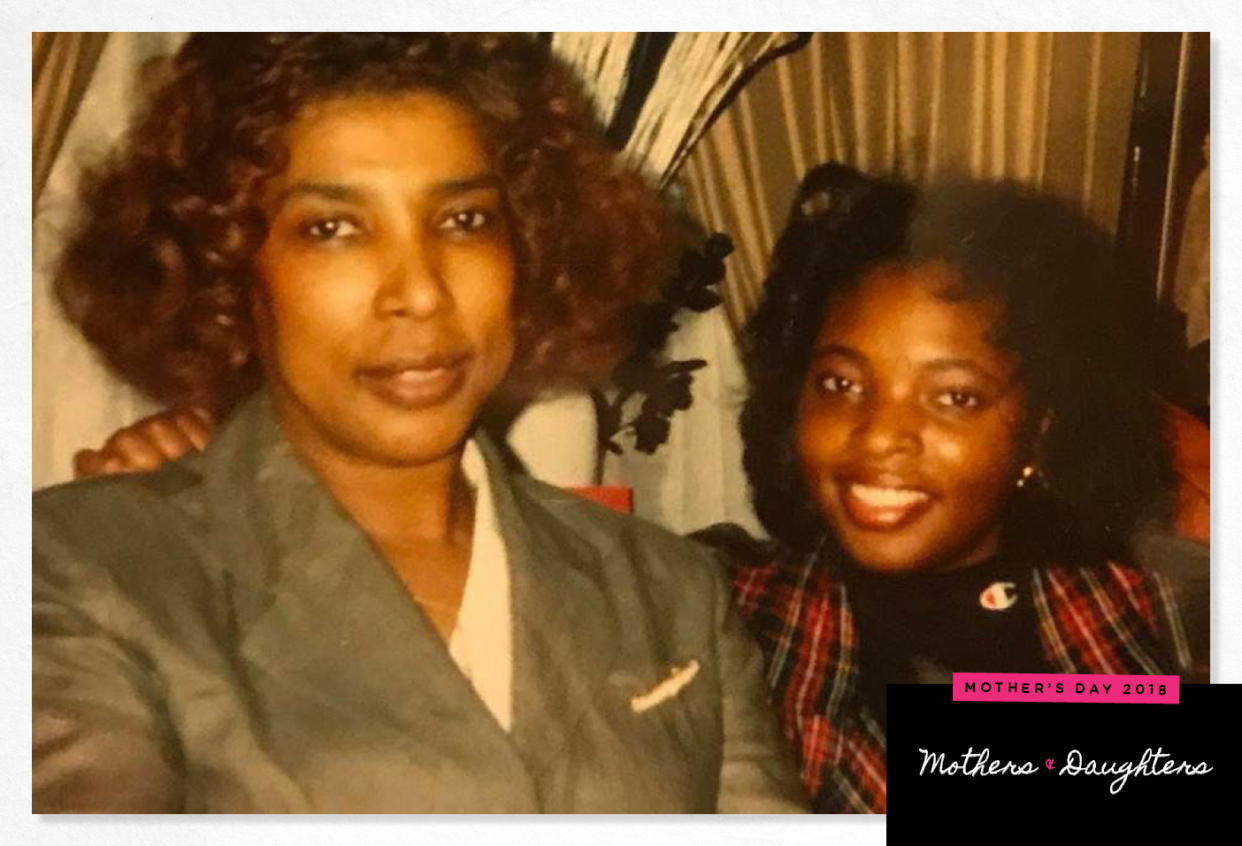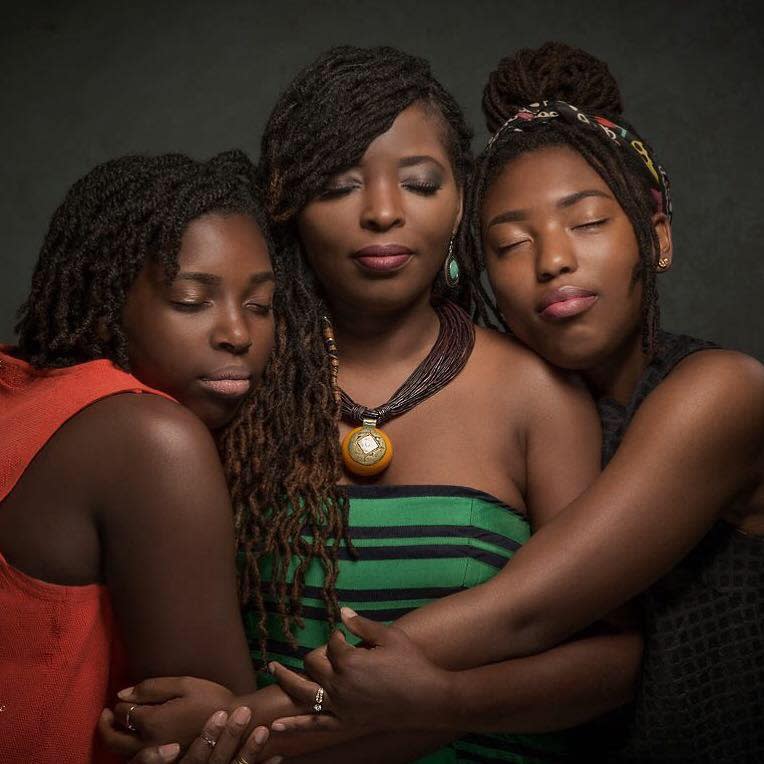One mother left me on the steps of an orphanage. The other adopted me. I'm grateful for both.

For Mother’s Day 2018, Yahoo Lifestyle asked women to share stories about something they understood about their moms only after becoming mothers themselves. This is the third in the series; you can read the first here and the second here.
I don’t know her name and honestly, I never really cared to. At least that’s what I’ve told myself over the years. The details of who my birth mother was, why she gave me away, where she came from, who her people are — for so very long, none of that mattered to me. Bettye and Jimy Millner are my parents. The gravitational pull of the moon, the alignment of the stars, the shine of the sun made this so. God made this so.
This is high concept for some. Let the media narrative tell it, and adoptees are pining for a connection to the mothers who birthed them — on a forever search to find their “real” moms and make “real” families with them. But adoption stories aren’t always so desperate; all page-turning dramatic and big. Sometimes they are quiet and the children are satisfied, and the forever parents are good and life lumbers on. That was my lot.
I discovered my adoption certificate while snooping in my parents’ private papers. I was 12 and shocked and too scared to say anything or ask any questions because, well, I had no business peeking into that metal box, for one, and two, saying it out loud would make it an alternate reality I wasn’t ready to dissect or accept.
My parents had kept it a secret. They didn’t intend to tell me about it, and leaving it that way just made sense for them, so I made it make sense for me, too. I pushed it deep into the recesses, past thick skin and blood and heart muscle — memory — and became the very fabric of the Millner clan. For the longest time, that was beyond enough.
That changed, though, when I got pregnant with my first baby and the questions started: “What’s your health history?” “Do healthy pregnancies run in your family?” “What’s in your blood?” My doctors wanted details. I couldn’t give them. Suddenly, the information I thought wasn’t important actually was. What’s in your blood?

And then I pushed one baby and then a second through my loins, and suckled them at my breast and searched them from the top of their curly little heads down to their tiny toes for evidence — signs of my blood, my DNA, my legacy, in the only two people on the planet I knew for sure were related by blood to me. The questions, asked by my doctors for practicality’s sake, became questions I started asking myself, for my own heart’s sake. What’s in your blood? became: Who is in your blood?
That’s an answer I’ll never truly have. The night we buried my mother — she died without knowing I knew about my adoption — my father gave me a small piece of my story, the only piece he knows: Someone had left me, a baby, on the stoop of an orphanage, and four days later, he and my mom went looking for a little girl and found me in a corner crib in the basement, arms outstretched, ready to go. That was the beginning and end of my “birth” story.
Over the years, I’ve used my imagination to fill in that story with color and light and grace: Maybe my birth mother was young and scared and couldn’t fathom raising a baby on her own. Maybe she was forced to leave me on that stoop by a family that refused to support her and her child. Maybe she was in an abusive relationship and feared her baby would get swooped into the violence. There are so many ways that it could have ended badly for me, a little defenseless baby. But instead, this woman, this angel, gave me life, and then gave me life again by giving me away.
It was a decision — a beautiful, selfless decision steeped in pain, heartbreak, and yes, love — that I can only understand because I am now a mother who carried her own babies in her womb and couldn’t fathom the strength and courage and resolve it would take to leave my children, my blood, the very beat of my heart, on a stoop for someone else to have.
It is the ultimate sacrifice. A miracle.
These are most appropriate descriptors when I think of my own adoption. Consider the miracle of birth — what it takes for sperm to meet egg and egg to attach to womb and for womb to maintain the absolute perfect conditions for new life and for new life to find its way to loving arms. Now consider the miracle of this particular adoption — what it took for my birth mother to get pregnant and give birth, but also to take this new life and make it so that it could find its way to loving arms. My parents’ arms. The arms of a mother whose blood was not my blood but whose heart connection was so deep, so expansive, so unconditional, so incredibly full, that it created the most perfect conditions for me to be … me. Safe. Successful. Happy. Deeply loved. Not by just one mother, but two.
This is a lesson I’ve been learning bit by bit since I was that little 12-year-old girl stumbling across her adoption papers and keeping the secrets and learning to love wholly, fully, like a mother.
I have two moms who adored me.
I am the lucky one.
Denene Millner is the New York Times bestselling author of MyBrownBaby: On the Joys and Challenges of Raising African American Children (Agate/Bolden/Denene Millner Books). You can read her blog here.
Read more from Yahoo Lifestyle:
Follow us on Instagram, Facebook, and Twitter for nonstop inspiration delivered fresh to your feed, every day.

